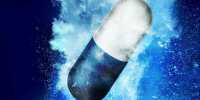A new study that looked for PFAS contamination in American women’s breast milk found it in all 50 samples tested, and at levels nearly 2,000 times higher than what some public health advocates consider safe for drinking water. According to the study’s authors, the findings “are cause for concern” and highlight a potential threat to the health of newborns.
Toxins and chemicals are all around us (poisons). Pesticides in the garden, flame retardants on furniture, lead, mercury, and some cleaning products are examples. The majority of chemicals you come into contact with on a daily basis will not harm your baby. However, if you are exposed to large amounts of chemicals for an extended period of time, your child may be at an increased risk of congenital disorders or future health problems.
Almost every pregnant woman will come into contact with chemicals that may be harmful to her or her unborn child. Some chemicals can enter your bloodstream and pass to your baby through the placenta if you breathe or swallow them. Your baby may be exposed to chemicals after birth through your breastmilk or by putting their fingers in their mouth. An alarming new study has discovered high levels of dangerous chemicals in new mothers’ breast milk, raising the possibility of health risks to their children.
An alarming new study has discovered high levels of dangerous chemicals in new mothers’ breast milk, raising the possibility of health risks to their children.
Vera Harrington
Per- and polyfluoroalkyl substances (PFAS) are a class of over 4,000 chemicals that persist in the environment for an extremely long time. In animal tests, they cause liver damage, reduced birthrates, and immunological disruption, as well as some health effects in humans.
PFAS are found in a wide range of products and materials, from dental floss and cosmetics to food packaging and furniture. Given their pervasiveness, it seemed inevitable that scientists would discover new ways for them to accumulate inside our bodies, as revealed by a study published in the journal Environmental Science and Technology.
A team of scientists from Indiana University, the University of Washington, and the Seattle-based research and advocacy organization Toxic-Free Future discovered alarmingly high levels of PFAS in breast milk samples donated by women all over the world in the study.
“I was really, really concerned and upset,” Vera Harrington, a study participant, told the Seattle Times. “I began to consider… I’d have to buy new furniture, which became a bit overwhelming. Then I had this realization that I could do the best job I could and still run into things beyond my control. Then it became extremely frustrating.”
Despite the potential health risks of these various compounds, the study coauthors maintain that the medical benefits of breastfeeding, such as boosting infants’ immune systems, outweigh any potential harms.
“Definitely, the evidence still shows that breast is best there are so many benefits,” study co-author and pediatric environmental health expert at the University of Washington Medical Center Sheela Sathyanarayana told the Seattle Times.
Furthermore, the compounds’ pervasiveness makes them nearly impossible to avoid, and Schreder believes that the best solution is a virtual ban on the entire chemical class, including those that industry claims do not accumulate as much in humans.
“The study adds to the evidence that the PFAS that companies are currently using and putting into products behave similarly to the ones that were phased out, and they’re also getting into breast milk and exposing children at a very vulnerable stage of development,” she said.
Breastfeeding has numerous advantages for your baby. Most working mothers can safely breastfeed their children. If you work with chemicals, breastfeeding is an important time to consult with your doctor because some chemicals can enter the breast milk and harm your baby. Your doctor can advise you on how to safely breastfeed while working.
One example is lead. Lead in breast milk can harm a baby’s brain development. If you work with lead, ask your doctor to test your blood lead level to see if you have too much lead in your body to breastfeed your baby safely.
















